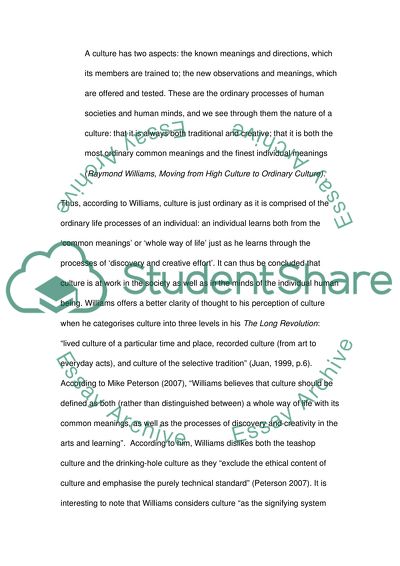Cite this document
(Raymond Williams' Concepts about Nature of Culture Essay, n.d.)
Raymond Williams' Concepts about Nature of Culture Essay. Retrieved from https://studentshare.org/culture/1722102-critically-discuss-raymond-williams-contribution-to-the-definition-and-the-study-of-culture
Raymond Williams' Concepts about Nature of Culture Essay. Retrieved from https://studentshare.org/culture/1722102-critically-discuss-raymond-williams-contribution-to-the-definition-and-the-study-of-culture
(Raymond Williams' Concepts about Nature of Culture Essay)
Raymond Williams' Concepts about Nature of Culture Essay. https://studentshare.org/culture/1722102-critically-discuss-raymond-williams-contribution-to-the-definition-and-the-study-of-culture.
Raymond Williams' Concepts about Nature of Culture Essay. https://studentshare.org/culture/1722102-critically-discuss-raymond-williams-contribution-to-the-definition-and-the-study-of-culture.
“Raymond Williams' Concepts about Nature of Culture Essay”, n.d. https://studentshare.org/culture/1722102-critically-discuss-raymond-williams-contribution-to-the-definition-and-the-study-of-culture.


